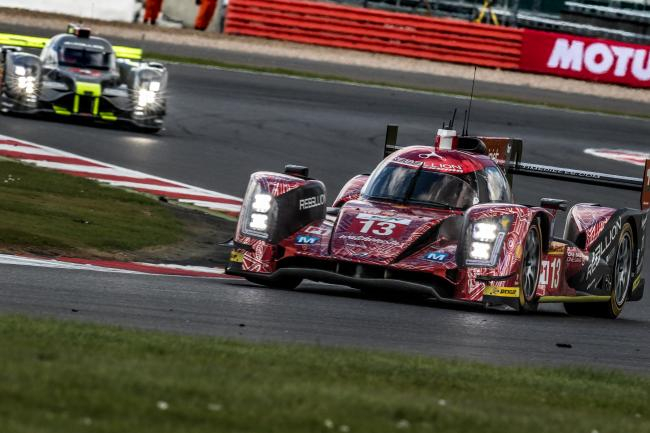

There may only be three cars contesting the FIA Endurance Trophy for Private LMP1 Teams in 2016, but that doesn’t mean the class will be any less hotly contested.
After privateer LMP1 stalwarts Rebellion Racing successfully capitalised on the misfortune of the factory teams to take outright podium finishes at the 6 Hours of Silverstone and Spa, the Swiss outfit will head into the Le Mans 24 Hours in confident mood. However, the ByKolles Racing Team have made significant strides too, as Pierre Kaffer explains.
“When you see the performance last year and how we increased the speed and the reliability, for such a small team it’s very impressive,” says Kaffer, who will be making his first appearance of the season with ByKolles at Le Mans. “We had a lot of points that we wanted to develop for this year. Some of them are already on the car, others we are waiting for the parts. If everything is ready for the pre-test then we will also use it for the race.”
Dominik Kraihamer, Mathéo Tuscher and Alexandre Imperatori’s consecutive third places in the opening two rounds was the first time in series history that Rebellion had managed the feat and as Imperatori points out, emphasises the continued significance of having a privateer presence in LMP1.

“Obviously it was a big surprise, we were just doing our work from our side,” says Imperatori. “It shows that it is very important to have strong privateer involvement. If the factory cars have problems, you need to have depth in the field and historically the privateers have always been a part of it.”
Perfect training school
In a new development for 2016, both teams will run on Dunlop tyres specially developed for their non-hybrid machinery. Participating in a development process that improves their technical understanding and quality of feedback, whether it be tyre, engine or chassis-related, can make LMP1 privateers an attractive proposition for manufacturer teams, as shown by Rebellion alumni Neel Jani.

“It makes sense to do the LMP1 privateer class because the young kids from GP2 can get seat-time, they can get the experience and maybe they get a chance to join a manufacturer,” says Kaffer. “Simon [Trummer] is a perfect example, he needs to build up his name and in my opinion he is doing a very good job.”
“The LMP1 privateer class is not just about driving fast, it’s about being technically savvy and really being involved in development,” agrees Imperatori. “LMP2 after all is a bit more of a spec kind of car, whereas LMP1 is a lot more open and more advanced in terms of the complexity of the car.
“It’s just a bigger team where you’ve got to work together with a lot of different people to make the car quicker, and you have to lead the development. It’s not just trying to optimise what you have, it’s also bringing new things to the car, so it’s a very good school.”
James Newbold